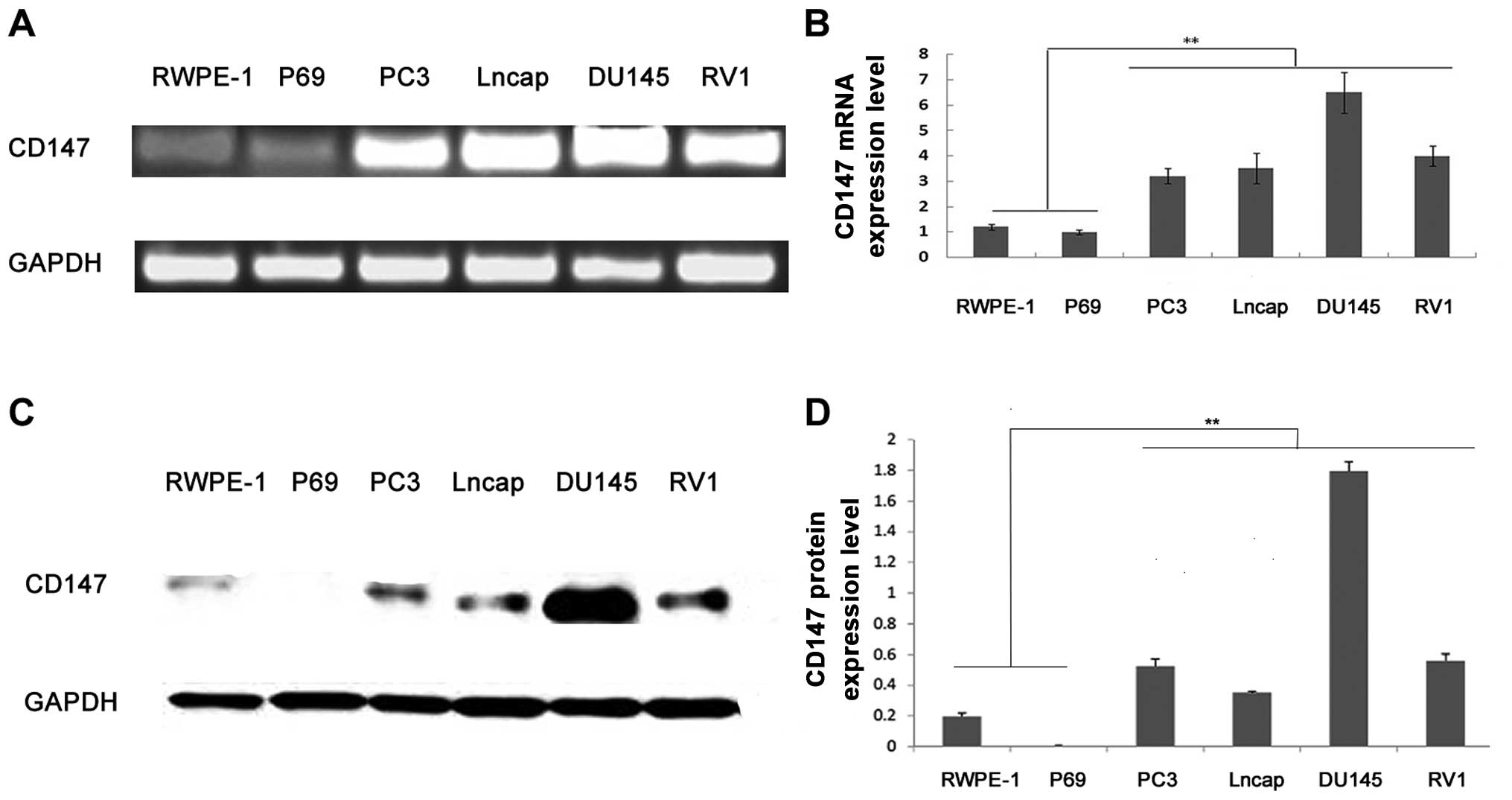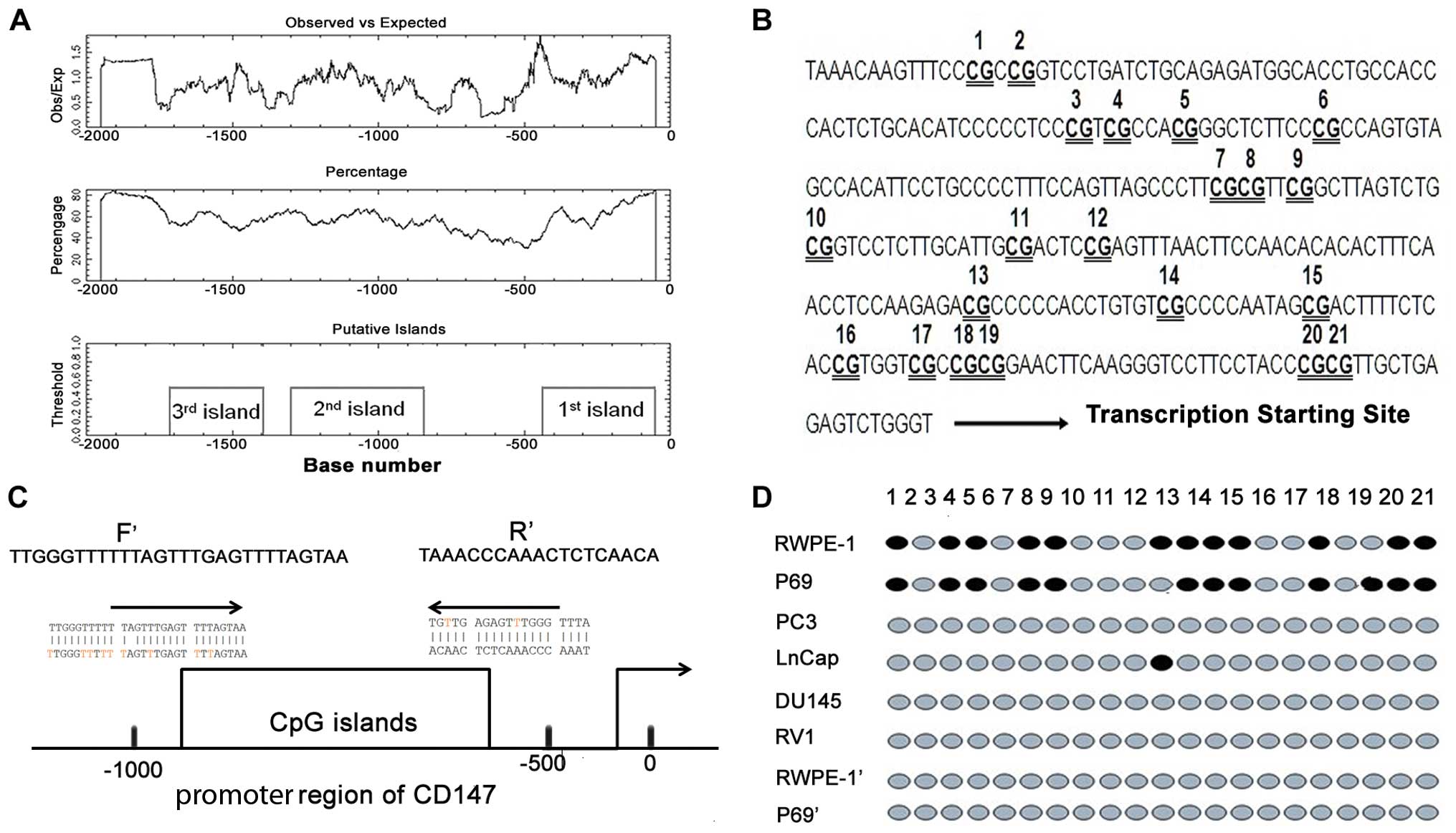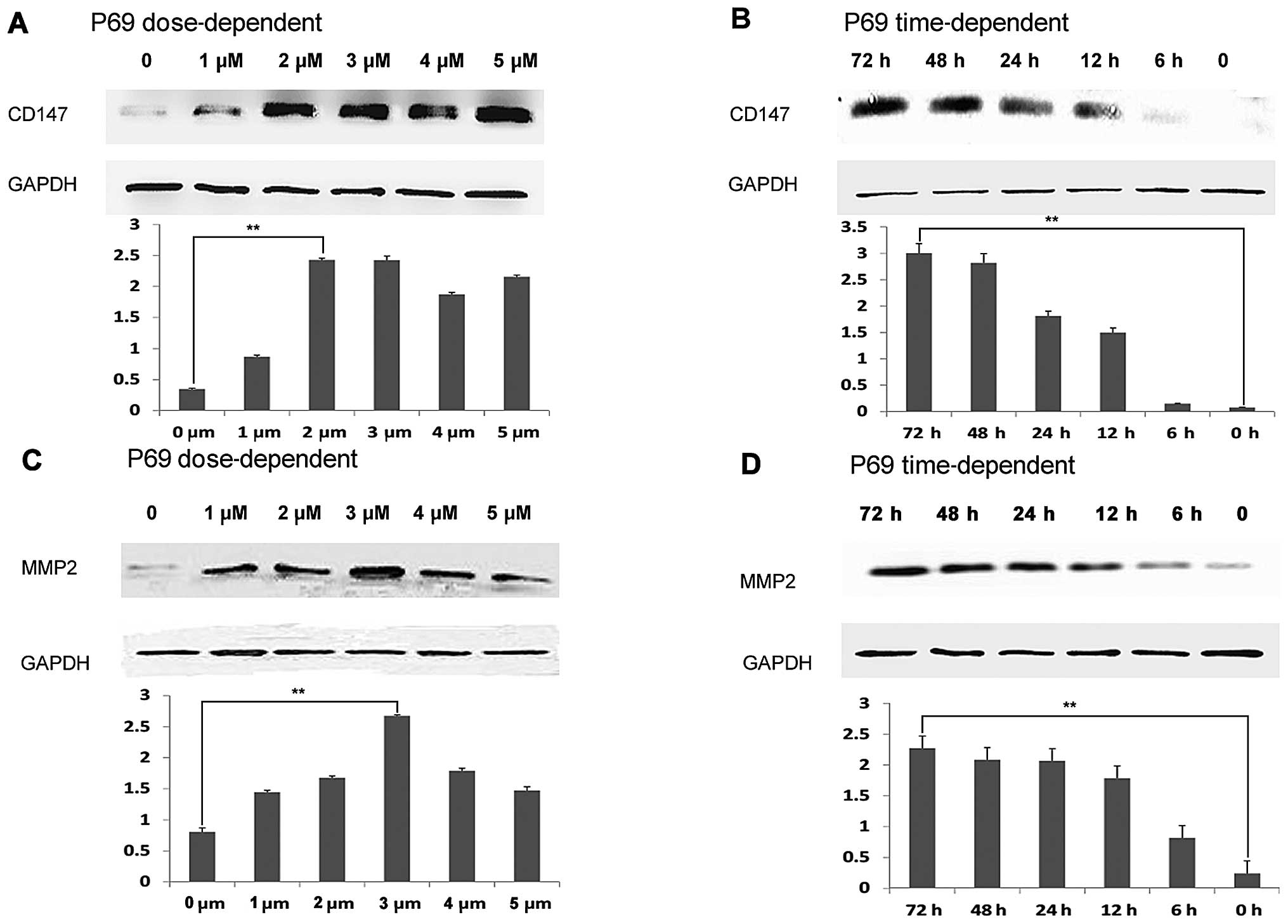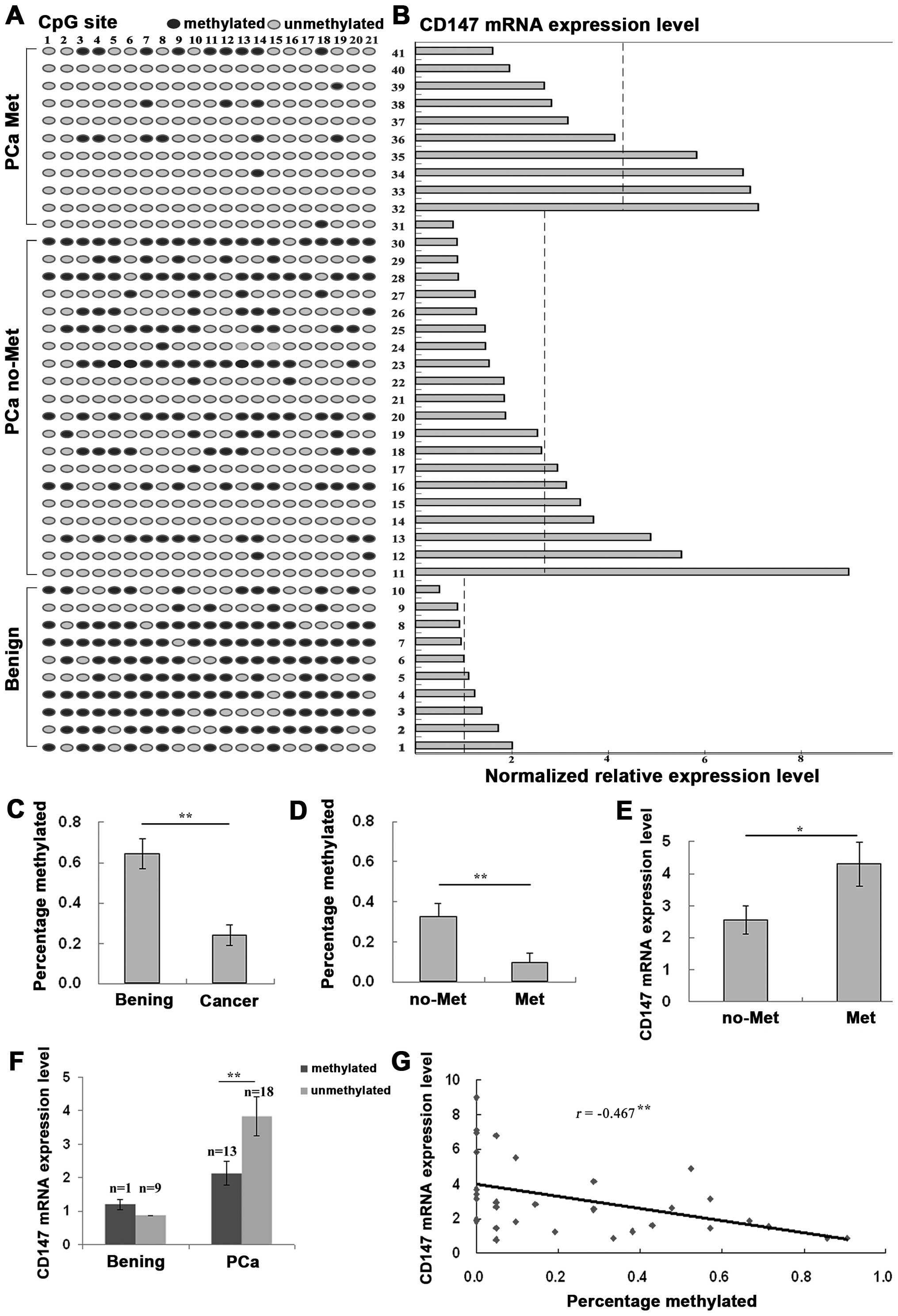|
1
|
Siegel R, Naishadham D and Jemal A: Cancer
statistics, 2013. CA Cancer J Clin. 63:11–30. 2013. View Article : Google Scholar : PubMed/NCBI
|
|
2
|
Molitierno J, Evans A, Mohler JL, Wallen
E, Moore D and Pruthi RS: Characterization of biochemical
recurrence after radical prostatectomy. Urol Int. 77:130–134. 2006.
View Article : Google Scholar : PubMed/NCBI
|
|
3
|
Klotz L: Hormone therapy for patients with
prostate carcinoma. Cancer. 88(Suppl 12): 3009–3014. 2000.
View Article : Google Scholar : PubMed/NCBI
|
|
4
|
Schoenborn JR, Nelson P and Fang M:
Genomic profiling defines subtypes of prostate cancer with the
potential for therapeutic stratification. Clin Cancer Res.
19:4058–4066. 2013. View Article : Google Scholar : PubMed/NCBI
|
|
5
|
Sharma S and Watabe K: Biomarkers and
mechanisms associated with recurrent prostate cancer. Front Biosci
(Landmark Ed). 19:339–351. 2014. View
Article : Google Scholar
|
|
6
|
Devaney JM, Wang S, Funda S, Long J,
Taghipour DJ, Tbaishat R, Furbert-Harris P, Ittmann M and
Kwabi-Addo B: Identification of novel DNA-methylated genes that
correlate with human prostate cancer and high-grade prostatic
intraepithelial neoplasia. Prostate Cancer Prostatic Dis.
16:292–300. 2013. View Article : Google Scholar : PubMed/NCBI
|
|
7
|
Yang B, Bhusari S, Kueck J, Weeratunga P,
Wagner J, Leverson G, Huang W and Jarrard DF: Methylation profiling
defines an extensive field defect in histologically normal prostate
tissues associated with prostate cancer. Neoplasia. 15:399–408.
2013.PubMed/NCBI
|
|
8
|
Lin PC, Giannopoulou EG, Park K, Mosquera
JM, Sboner A, Tewari AK, Garraway LA, Beltran H, Rubin MA and
Elemento O: Epigenomic alterations in localized and advanced
prostate cancer. Neoplasia. 15:373–383. 2013.PubMed/NCBI
|
|
9
|
Aryee MJ, Liu W, Engelmann JC, Nuhn P,
Gurel M, Haffner MC, Esopi D, Irizarry RA, Getzenberg RH, Nelson
WG, et al: DNA methylation alterations exhibit intraindividual
stability and interindividual heterogeneity in prostate cancer
metastases. Sci Transl Med. 5:169ra102013. View Article : Google Scholar : PubMed/NCBI
|
|
10
|
Majumdar S, Buckles E, Estrada J and
Koochekpour S: Aberrant DNA methylation and prostate cancer. Curr
Genomics. 12:486–505. 2011. View Article : Google Scholar :
|
|
11
|
Dimitriadis E, Kalogeropoulos T, Velaeti
S, Sotiriou S, Vassiliou E, Fasoulis L, Klapsas V, Synesiou M,
Apostolaki A, Trangas T, et al: Study of genetic and epigenetic
alterations in urine samples as diagnostic markers for prostate
cancer. Anticancer Res. 33:191–197. 2013.
|
|
12
|
Yu YP, Ding Y, Chen R, Liao SG, Ren BG,
Michalopoulos A, Michalopoulos G, Nelson J, Tseng GC and Luo JH:
Whole-genome methylation sequencing reveals distinct impact of
differential methylations on gene transcription in prostate cancer.
Am J Pathol. 183:1960–1970. 2013. View Article : Google Scholar : PubMed/NCBI
|
|
13
|
Haldrup C, Mundbjerg K, Vestergaard EM,
Lamy P, Wild P, Schulz WA, Arsov C, Visakorpi T, Borre M, Høyer S,
et al: DNA methylation signatures for prediction of biochemical
recurrence after radical prostatectomy of clinically localized
prostate cancer. J Clin Oncol. 31:3250–3258. 2013. View Article : Google Scholar : PubMed/NCBI
|
|
14
|
Chao C, Chi M, Preciado M and Black MH:
Methylation markers for prostate cancer prognosis: A systematic
review. Cancer Causes Control. 24:1615–1641. 2013. View Article : Google Scholar : PubMed/NCBI
|
|
15
|
Dietrich D, Hasinger O, Bañez LL, Sun L,
van Leenders GJ, Wheeler TM, Bangma CH, Wernert N, Perner S,
Freedland SJ, et al: Development and clinical validation of a
real-time PCR assay for PITX2 DNA methylation to predict
prostate-specific antigen recurrence in prostate cancer patients
following radical prostatectomy. J Mol Diagn. 15:270–279. 2013.
View Article : Google Scholar
|
|
16
|
Kron K, Trudel D, Pethe V, Briollais L,
Fleshner N, van der Kwast T and Bapat B: Altered DNA methylation
landscapes of polycomb-repressed loci are associated with prostate
cancer progression and ERG oncogene expression in prostate cancer.
Clin Cancer Res. 19:3450–3461. 2013. View Article : Google Scholar : PubMed/NCBI
|
|
17
|
Vasiljević N, Ahmad AS, Beesley C, Thorat
MA, Fisher G, Berney DM, Møller H, Yu Y, Lu YJ, Cuzick J, et al:
Association between DNA methylation of HSPB1 and death in low
Gleason score prostate cancer. Prostate Cancer Prostatic Dis.
16:35–40. 2013. View Article : Google Scholar
|
|
18
|
Gabison EE, Mourah S, Steinfels E, Yan L,
Hoang-Xuan T, Watsky MA, De Wever B, Calvo F, Mauviel A and Menashi
S: Differential expression of extracellular matrix
metalloproteinase inducer (CD147) in normal and ulcerated corneas:
role in epitheliostromal interactions and matrix metalloproteinase
induction. Am J Pathol. 166:209–219. 2005. View Article : Google Scholar : PubMed/NCBI
|
|
19
|
Sun J and Hemler ME: Regulation of MMP-1
and MMP-2 production through CD147/extracellular matrix
metalloproteinase inducer interactions. Cancer Res. 61:2276–2281.
2001.PubMed/NCBI
|
|
20
|
Wang L, Wu G, Yu L, Yuan J, Fang F, Zhai
Z, Wang F and Wang H: Inhibition of CD147 expression reduces tumor
cell invasion in human prostate cancer cell line via RNA
interference. Cancer Biol Ther. 5:608–614. 2006. View Article : Google Scholar : PubMed/NCBI
|
|
21
|
Zhong WD, Han ZD, He HC, Bi XC, Dai QS,
Zhu G, Ye YK, Liang YX, Qin WJ, Zhang Z, et al: CD147, MMP-1, MMP-2
and MMP-9 protein expression as significant prognostic factors in
human prostate cancer. Oncology. 75:230–236. 2008. View Article : Google Scholar : PubMed/NCBI
|
|
22
|
Madigan MC, Kingsley EA, Cozzi PJ,
Delprado WJ, Russell PJ and Li Y: The role of extracellular matrix
metalloproteinase inducer protein in prostate cancer progression.
Cancer Immunol Immunother. 57:1367–1379. 2008. View Article : Google Scholar : PubMed/NCBI
|
|
23
|
Hao JL, Cozzi PJ, Khatri A, Power CA and
Li Y: CD147/EMMPRIN and CD44 are potential therapeutic targets for
metastatic prostate cancer. Curr Cancer Drug Targets. 10:287–306.
2010. View Article : Google Scholar : PubMed/NCBI
|
|
24
|
Han ZD, Bi XC, Qin WJ, He HC, Dai QS, Zou
J, Ye YK, Liang YX, Zeng GH, Chen ZN, et al: CD147 expression
indicates unfavourable prognosis in prostate cancer. Pathol Oncol
Res. 15:369–374. 2009. View Article : Google Scholar
|
|
25
|
Zhong WD, Liang YX, Lin SX, Li L, He HC,
Bi XC, Han ZD, Dai QS, Ye YK, Chen QB, et al: Expression of CD147
is associated with prostate cancer progression. Int J Cancer.
130:300–308. 2012. View Article : Google Scholar
|
|
26
|
Liang L, Major T and Bocan T:
Characterization of the promoter of human extracellular matrix
metalloproteinase inducer (EMMPRIN). Gene. 282:75–86. 2002.
View Article : Google Scholar : PubMed/NCBI
|
|
27
|
Truong M, Yang B, Livermore A, Wagner J,
Weeratunga P, Huang W, Dhir R, Nelson J, Lin DW and Jarrard DF:
Using the epigenetic field defect to detect prostate cancer in
biopsy negative patients. J Urol. 189:2335–2341. 2013. View Article : Google Scholar
|


















